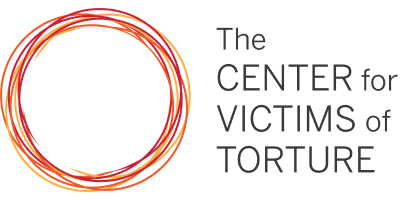In Atlanta, Georgia, CVT extends rehabilitative care to refugees and asylum seekers, incorporating the specialized care that is most effective for survivors of torture who have fled their countries to the U.S. in search of safety and a new beginning.
Note: Since the COVID-19 crisis, CVT offers clients the option of receiving services via telehealth but also continue to see clients in the clinic. We are taking new referrals.
CVT Georgia uses a holistic model of care that incorporates psychotherapy, clinical case management and professional interpretation to address the unique needs of clients in a safe therapeutic space.
In addition, until 2024 we also worked to support human rights and the lives of refugees and asylum seekers in the state of Georgia, engaging in policy advocacy to enable clients to rebuild their lives and restore their hope after surviving torture.
Arman Project
To serve Afghan refugees who are living in Georgia, CVT’s Arman project provides culturally and linguistically appropriate services to our clients, offered both in Dari and Pashto. We incorporate cultural competence into every aspect of our services, ensuring that clients feel comfortable and understood as they work toward rebuilding their lives in the United States.
Client Numbers
603
Clients and family members received care in 2024
21
Client countries of origin in 2022, representing 17 primary languages
96%
In 2022, clients reported less trouble concentrating, one of many post-trauma symptoms
Atlanta, Georgia
- In 2016, CVT opened a healing center for survivors of torture in Atlanta, Georgia.
- The Georgia Advisory Council was formed in 2018 to advise and assist CVT Georgia in all aspects of its work.
“The services that CVT brings to the community are so critical. There’s such a lack of mental health services, broadly speaking. But when you add the additional cultural and linguistic barriers that often may preclude some of the clients that we serve from seeking some of those services—to have an organization that is sensitive to those needs is really important.”
— Justin Howell, IRC executive director for Atlanta, Tallahassee and Miami
Our focus on refugees and asylum seekers allows us to reach survivors of torture early in their resettlement process, allowing healing to begin sooner than occurs in other locations. Over time, these early interventions help prevent the immense costs that come with unmet needs for mental health care.
This [client] said at the beginning, no, I will never learn. This person thought they weren’t going to be able to do anything in the U.S. And they’re thriving.”
-Leticia Carvajal, CVT Georgia Spanish interpreter
Contacts
For more information about programming and rehabilitative care, please contact Dr. Adaobi Iheduru, licensed psychologist/team lead, at 470-545-2776 or [email protected].
Click here for information about CVT’s Georgia Advisory Council.
CVT Georgia is proud to extend healing care to Georgia residents across the metro area, thanks to the generous support of our funders and community partners. CVT services are provided at no cost to our clients.
